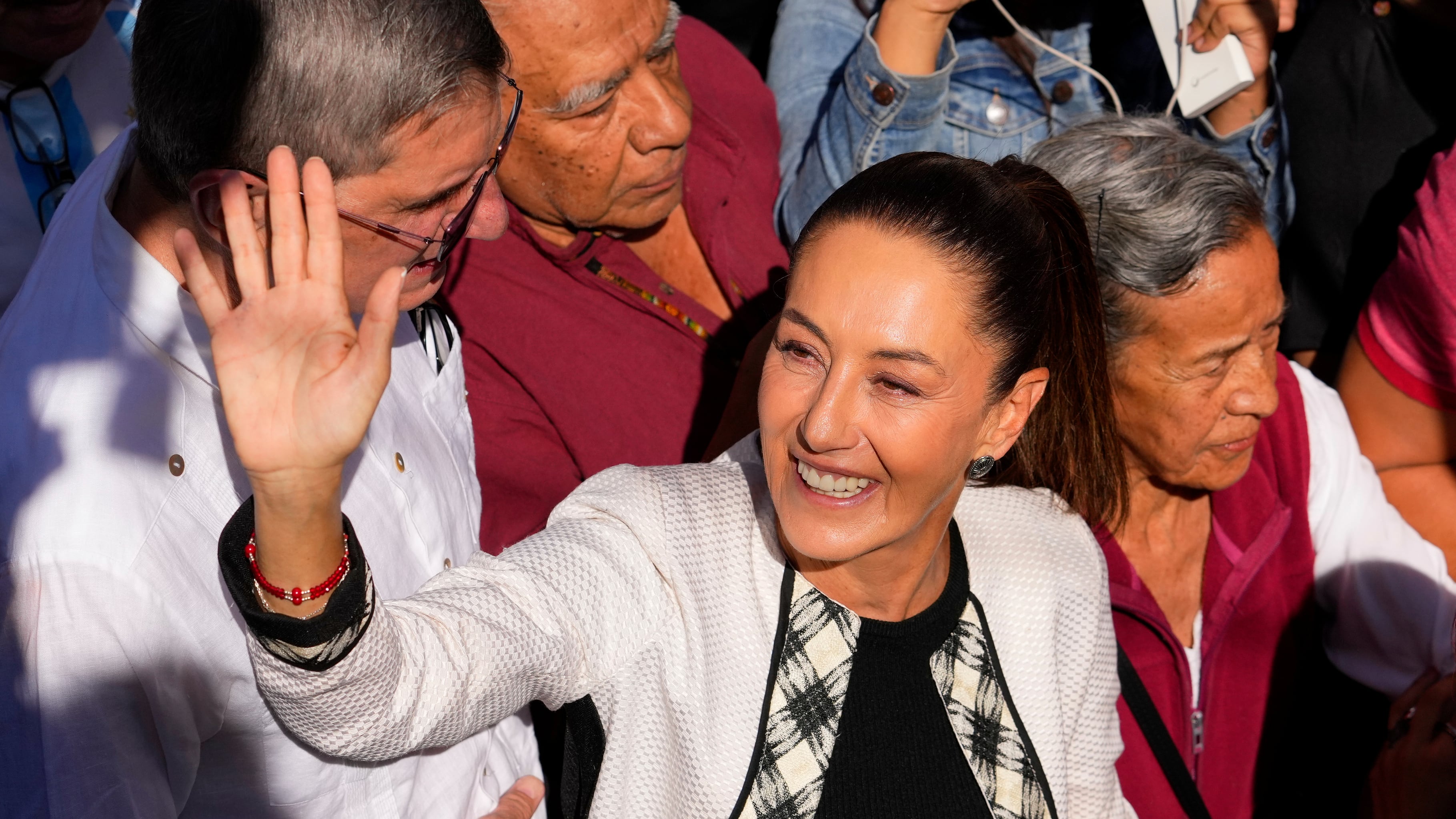MEXICO CITY (AP) — Claudia Sheinbaum becomes on Tuesday the first woman to assume the presidency of Mexico in its more than 200 years of independent history with the commitment to continue the policies of her predecessor, Andrés Manuel López Obrador.
The 62-year-old scientist and former mayor of Mexico City, who identifies as leftist, comes to power after a resounding victory in the general elections in June and the support of her mentor, López Obrador, whom she met over two decades ago.
PUBLICIDAD
Although her political closeness to the popular Mexican leader is undeniable, with whom she shares her understanding of the government's role in fighting inequality, she is considered less confrontational and more focused on data and academia, something she aimed to incorporate into her cabinet by including some researchers and academics.
Sheinbaum will be able to govern comfortably, at least in the first half of her six-year term, since the ruling party Morena and its allied forces will have control of the Congress until 2027, and the opposition was decimated in the last elections.
The new president has insisted on emphasizing her scientific background. She has a Ph.D. in Energy Engineering. Her brother is a physicist. In an interview with The Associated Press in 2023, she proclaimed: "I believe in science."
During the COVID-19 pandemic, he chose to give it a different approach than the one López Obrador was following at the national level.
While the federal government downplayed the importance of coronavirus testing, Mexico City expanded its testing policy. Sheinbaum restricted working hours and conditions in companies as the virus spread rapidly, even though López Obrador wanted to avoid any restrictions that could harm the economy. She also publicly wore a mask and urged social distancing, something the former president was adamant about not following.
Politics also has a strong left-wing background, predating López Obrador's nationalist and populist movement.
His parents were prominent activists in the Mexican student movement of 1968, which tragically ended with a massacre in Tlatelolco Square in Mexico City just days before the Olympic Games were held there that year. Dozens of students and civilians died in the midst of a shootout involving both military and undercover government agents. Official records state that around 25 people died, although some estimates suggest that at least 350 people lost their lives.
Sheinbaum is also the first female president of Jewish origin in a predominantly Catholic country.
Despite identifying as a progressive and proclaiming during her electoral campaign that she will fight to reclaim women's rights once in power, the new female leader has handled the issue of abortion with caution. She has also kept her distance from the demands of hundreds of "searching mothers" —as those who independently search for their missing children and relatives are known in the country—, who have denounced the government's neglect in the face of a violence tragedy that has resulted in over 115,000 disappearances.
There are many challenges awaiting Sheinbaum in the next six years, but violence will be one of the biggest. The new leader has committed to maintaining the security policies of her predecessor and continuing to rely on the armed forces and the National Guard. She has also stated that she will preserve social programs aimed at young people to prevent them from being recruited by cartels.
In line with the policies of her predecessor, Sheinbaum has shown in recent weeks open support for a package of constitutional changes promoted by López Obrador at the end of his term, including controversial reforms to the judiciary and military, which were recently approved.
The judicial initiative, which was implemented amid strong protests from court employees, establishes the popular election starting next year of more than 1,000 judges. With the military reform, the transfer of the National Guard to army control was formalized, deepening the militarization of public security despite criticisms from humanitarian groups and United Nations experts.
After the recent wave of violence in the northwestern state of Sinaloa due to disputes between two factions of the Sinaloa Cartel, the new president reaffirmed her commitment to the non-confrontational policy towards criminal groups that López Obrador maintained, and announced that she will present initiatives to Congress to reform security laws and create a National Intelligence and Investigation System.
In terms of the economy, he has also shown affinities with his predecessor. He has blamed neoliberal economic policies for condemning millions of people to poverty, promised a strong welfare state, praised the large Mexican state oil company Pemex, while also pledging to intensify the use of clean energy.
"Being left-wing has to do with that, with ensuring the minimum rights for all inhabitants," Sheinbaum told AP last year.
But unlike López Obrador, who got tangled several times in public fights with representatives of other branches of power, such as the judiciary or the electoral, and the media, Sheinbaum has shown herself to be less confrontational, or at least more selective in her battles.
